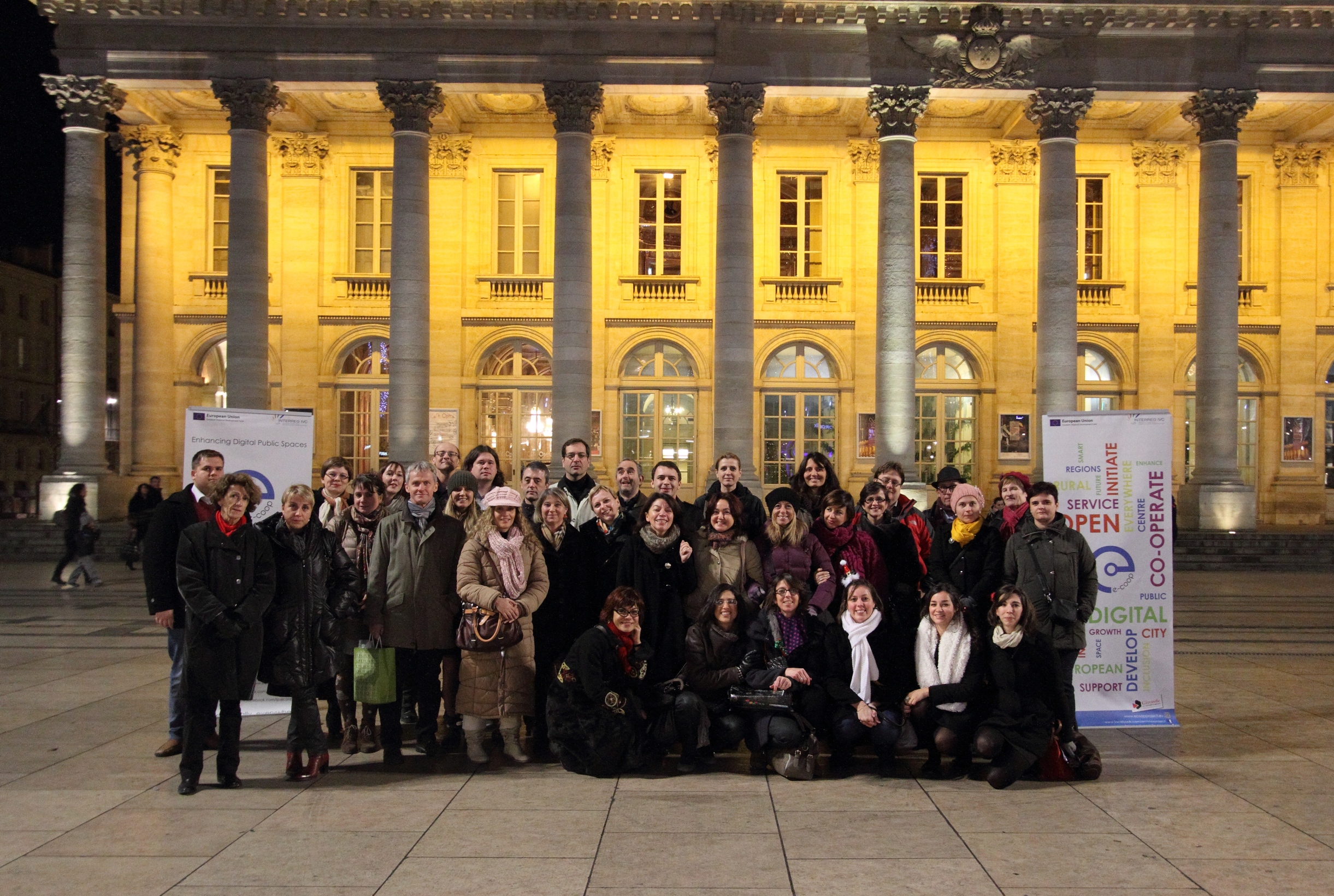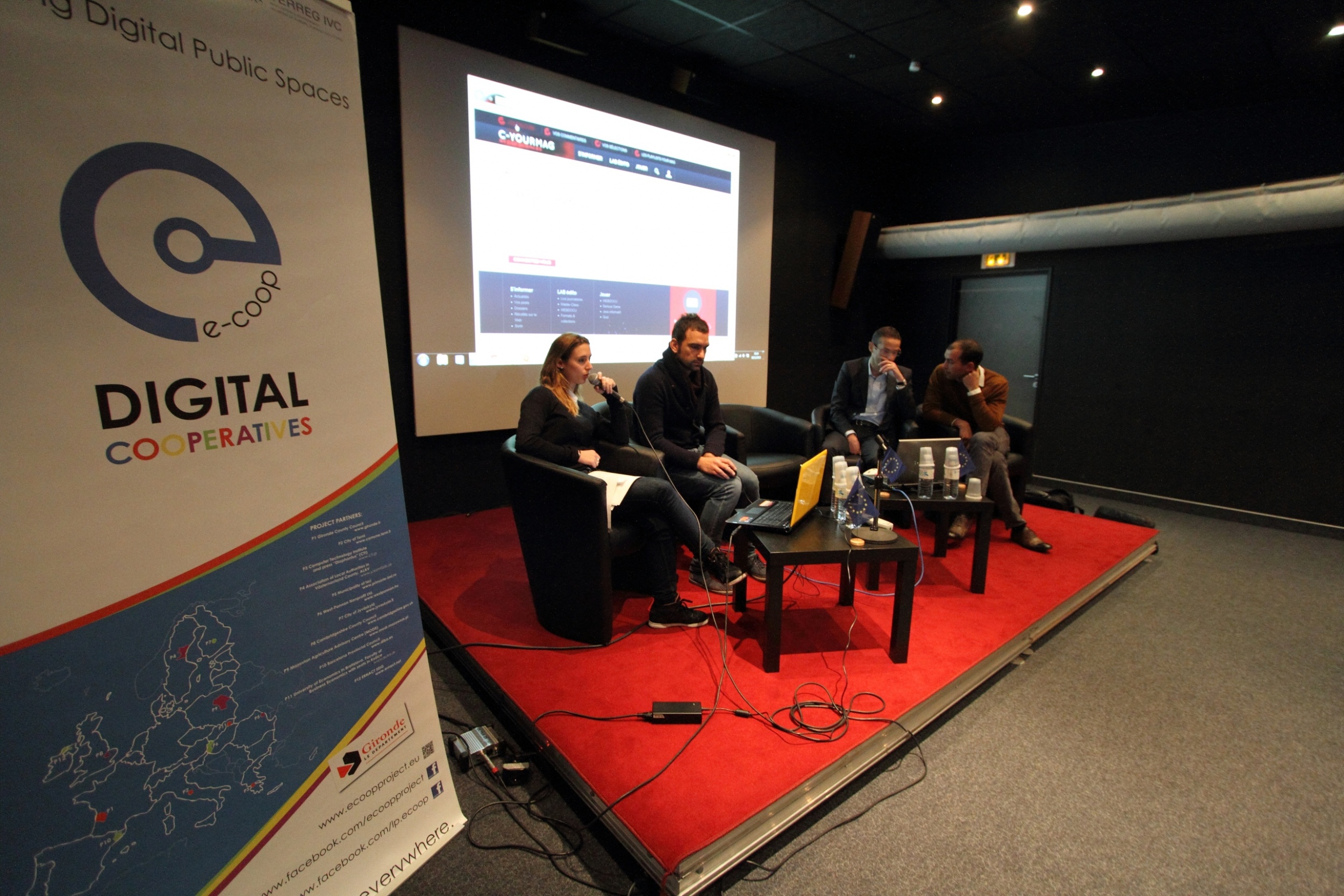European citizens do not participate equally in the Information society: in fact, the digital gap is moving down from infrastructures to uses. Based on this observation, local authorities in Europe have developed Digital Public Spaces (DPS) promoting e-inclusion.

The first day took place in Bordeaux, in the premises of Cap Sciences, a scientific Centre where events and exhibitions are organised. Cap Sciences also participates to projects in the field of digital mediation, such as “Inmédiats” whose aim is to develop and experiment new tools of cultural mediation exploiting the potential of new digital technologies towards young audiences.
Yann Breton, director of Gironde Numérique, explained why and how the County Council and the local municipalities chose to develop a broadband optical fiber network throughout the County, especially in rural areas. Now, Gironde Numérique also provides local authorities with various digital services.
Pascal Romain has developped the Open data project in Gironde CC’s IT Department, in collaboration with other local authorities. He presented a public platform called the „Ressourcerie” which aims at promoting Open data and engaging citizens into sharing information resources
Two representatives of Gironde County’s public library explained why they promote the use ofdigital tools, among which video games, in their network and with the users. Walid Hanna, a librarian in Le Taillan-Médoc public library and former game designer, also highlighted the challenges related to videogaming as an innovative social tool. Then they coordinated three different practical workshops with the E-Coop partners.
In the evening, the partners attended a presentation of „MOPA’s territory digital mediators” BP in the premises of Gironde County Tourism office in Bordeaux. Jean-Luc Boulin, director of MOPA regional network of Tourist information centres, clarified why -and how- tourism professionals are developing digital skills and mutualising their competences in view of enhancing the quality of services to the customers and attracting new visitors.

On the 2nd day, the morning session took place in the Bois fleuri media public library in the City of Lormont. The e-COOP partners were greeted by Mr Jean Touzeau, Mayor of Lormont and Vice-President of Gironde County Council in charge of European and territorial cooperation, and Ms Isabelle Dexpert, Vice-President in charge of Cultural affairs.
http://www.mediatheque.lormont.fr/
A presentation of the structure was made by Johann Brun, assistant manager. The public library opened in 2010 in a renewed district of Lormont, located in the suburbs of Bordeaux, over the right bank of the Garonne River. The library is involved in many activities and local cultural events.
Fabrice Casareggio, who runs the library’s multimedia section, detailed the various services provided, such as 13 PCs and free wifi for all users. Training and learning through digital tools are major highlights of the equipment. Three digital mediators work in the multimedia section, providing users with training, workshops as well as individual counseling
A couple of other presentations followed, all focused on the day’s thematic „Digital uses, a relevant way to enhance local links and networks” :
Etienne Parin, Director of GPV des Hauts de Garonne, introduced the „Digital right bank” best practice (BP). He first recalled the local context, with urban renewal operations in an area which used to be known for poor living conditions and mixed origins populations. As new buildings and housing were built, a need also appeared to foster a stronger sense of community. Digital tools and projects have been designed with the inhabitants themselves, as a way to encourage collaboration and the sharing of resources and ideas.
http://www.surlarivedroite.fr/pageseditos,153,left_A5D8E511.html
Valérie Paraboschi, a digital project manager in GCC, presented the Hesti@ BP run by Gironde CC. The objective of this experiment is to demonstrate how digital tools can recreate social ties within a community, with the support of a local community centre and the involvement of some inhabitants.
In the afternoon, the e-COOP partners took a Gironde County „e-car” („e-bus”) to the rural municipality of Pomerol. They discovered a co-working space called „Arrêt Minute”. Over the last 2 years, it has been offering training on digital topics and raising awareness to local entrepreneurs.
Marie-Laure Cuvelier presented the regional group „Tiers lieux en Aquitaine”. Based on a dynamic community of independant workers and supported by Aquitaine Regional Council, this network is aimed at promoting the development of coworking spaces and habits. She defined what are „Tiers lieux” („third places”) and why they represent a new way of working and collaborating.
Finally, Cécil Clémenceau-Mazon, who is in charge of economic development projects for the Association of local authorities of Portes de l’Entre-deux-mers, presented a coworking space recently launched by the Association as a means to encourage teleworking and to reduce daily commuting.
The afternoon ended with a touristic visit of the nearby World Heritage medieval City of Saint Emilion before sharing a European dinner in Bordeaux.



